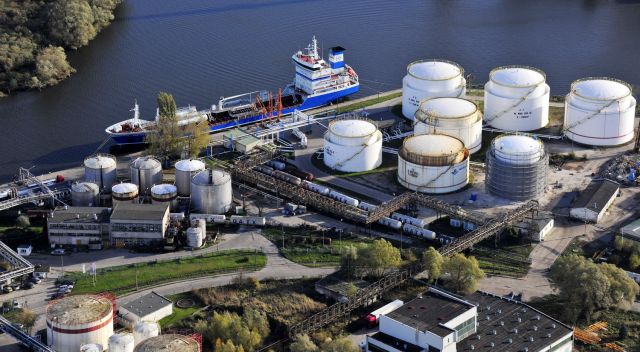What goes on in Poland on the 15th of March.
Strategic assets of Baltchem and Oktan will be protected so that western Poland does not run out of fuel
The draft amendment to the government regulation on a list of entities subject to strategic protection was included in the list of documents on March 13. The list is to be adopted in the first quater of 2023. The goal is to protect the legal order and public security as defined in the Treaty on the Functioning of the European Union and to safeguard transactions relating to ownership rights. Potentially this gives the state tools to block hostile takeovers by actors that could undermine the security of fuel supply.
Baltchem and Oktan Energy, with assets in western Poland, are key to securing fuel supply in the region. Their importance is growing as German refineries in Schwedt and Leuna, which also provide fuel to western Poland, have abandoned oil from Russia. In result oil processing at Schwedt has dropped, which may cause a decline in fuel supply.
„Since both companies are protected (as they produce gasoline or oil, store gasoline and oil, and transship oil and its derivatives in harbors), it is being proposed that they are supervised by the proper minister for state assets,” the Polish Press Agency quoted the draft regulation.
BiznesAlert.pl has previously reported that private fuel terminals and bases in the area will be crucial to maintaining the security of fuel supplies, especially considering the fact that the media in Ukraine have been speculating about Russian entities being interested in these companies.
Tauron starts construction of new wind farm in western Pomerania
Tauron started building its Mierzyn wind farm in the West Pomeranian Voivodeship. The company will install 15 turbines with a total capacity of 58.5 MW, thanks to which it will supply energy to more than 68,000 households.
Tauron has eleven wind farms in Poland, which operate two hundred turbines with a total capacity of 416 MW. It is currently building four more wind farms with a capacity of 140 MW and one PV farm with a capacity of 50 MW. The energy from these plants is expected to reach consumers as early as in 2024.
Tauron’s latest strategy involves increasing its green capacity. According to the plans, in 2025 the company will have 1,600 MW in wind, photovoltaic and hydroelectric power. Five years later, in 2030, it will be 3,700 MW.
Supreme Administrative Court suspends works on the Odra river
The Supreme Administrative Court dismissed the complaint of Polish Waters (Wody Polskie – ed.) and the General Directorate for Environmental Protection against the decision suspending the works on regulating the Odra river. Poland’s attempts at regulating the river are a source of a dispute between the governments in Warsaw and Berlin.
Law and Justice (ruling party in Poland – ed.) MP Jerzy Materna, quoted by the TAZ newspaper, called the ruling a scandal. „A foreign state meddles in Polish water bodies, and the court gives its consent without listening to experts,” he said. According to him, the „German side” wants to prevent Poland from investing in the infrastructure of the river.
The dispute between Poland and Germany started last summer when a fish die-off occurred in the river, which was caused by the river being polluted. In connection with the ecological disaster, Berlin pushed to stop work on the regulation of the river, which was pursued by Warsaw. Two Polish courts sided with arguments for stopping the works on the river.
Court will not disclose data on Schroeder lobbying for Russia
The Administrative Court in Berlin ruled that the Office of former German Chancellor Gerhard Schroeder does not have employees, so cannot hand over documents about his involvement in lobbying for Russia. This has now been confirmed by a higher court.
The Higher Administrative Court of Berlin-Brandenburg ruled that since former German Chancellor Gerhard Schroeder no longer had staff in the office, he could not hand over the documents requested by the FragDenStaat. The internet platform wanted to obtain evidence of Schroeder’s involvement in lobbying for the Russian energy sector.
During his term as Chancellor, Schroeder advocated energy cooperation with Russia and led to the construction of the Nord Stream 1 gas pipeline to Germany. Once retired, he became a member of the supervisory boards and boards of Russian companies, including Rosneft and Nord Stream 2 AG (100 percent owned by Gazprom), responsible for the second gas pipeline from Russia to Germany. His chancellery office denied access to information about Schroeder’s involvement in relations with the Russians until it was disbanded.
Then the court in Berlin refused FragDenStaat information, arguing the platform was not the media, although its representatives have press IDs. The ruling on the inability to provide information after the closure of Schroeder’s office has caused a debate in Germany about restricting access to public information.









